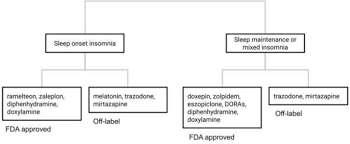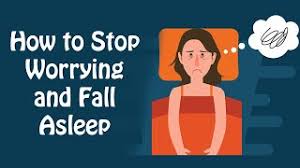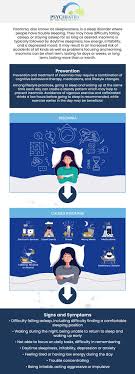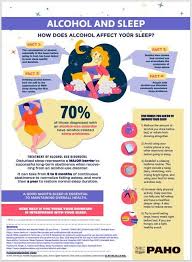Treatment-Resistant Insomnia: Causes, Effects, and Management
Insomnia is a common sleep disorder that affects millions of people worldwide. While many individuals can find relief through various treatment options such as lifestyle changes, therapy, or medication, some experience what is known as treatment-resistant insomnia.
Causes of Treatment-Resistant Insomnia
Treatment-resistant insomnia occurs when individuals do not respond to conventional treatments for insomnia. There are several factors that can contribute to this condition:
- Underlying Health Conditions: Certain medical conditions such as chronic pain, depression, anxiety disorders, or sleep apnea can make it challenging to treat insomnia effectively.
- Psychological Factors: Stress, trauma, or other psychological issues can play a significant role in the development of treatment-resistant insomnia.
- Sleep Environment: Poor sleep hygiene practices or an uncomfortable sleep environment can hinder the effectiveness of treatment for insomnia.
Effects of Treatment-Resistant Insomnia
The consequences of untreated or poorly managed treatment-resistant insomnia can be severe and impact various aspects of an individual’s life:
- Daytime Fatigue: Persistent lack of quality sleep can lead to daytime fatigue, decreased concentration, and impaired cognitive function.
- Mental Health Issues: Chronic insomnia is associated with an increased risk of developing mental health conditions such as depression and anxiety disorders.
- Physical Health Concerns: Prolonged sleep deprivation can weaken the immune system, increase the risk of heart disease, obesity, diabetes, and other health problems.
Management Strategies for Treatment-Resistant Insomnia
While treatment-resistant insomnia can be challenging to address, there are strategies that individuals can explore under the guidance of healthcare professionals:
- Cognitive-Behavioral Therapy for Insomnia (CBT-I): CBT-I is a structured program that helps individuals identify and change negative thoughts and behaviors related to sleep.
- Medication Adjustments: In some cases, adjusting the type or dosage of medications used to treat insomnia may be necessary to improve effectiveness.
- Lifestyle Modifications: Implementing healthy sleep habits (sleep hygiene), reducing caffeine intake, establishing a relaxing bedtime routine can contribute to better sleep quality.
If you are struggling with treatment-resistant insomnia, it is essential to consult with a healthcare provider who specializes in sleep medicine. They can help identify underlying causes and recommend personalized treatment approaches tailored to your specific needs.
Overcoming Treatment-Resistant Insomnia: Effective Strategies for Chronic and Intractable Sleep Disorders
- How do you break chronic insomnia?
- How do you overcome intractable insomnia?
- Why can’t I recover from insomnia?
- How is insomnia resistant treated?
How do you break chronic insomnia?
Breaking chronic insomnia, especially when it is treatment-resistant, requires a comprehensive approach that addresses underlying causes and incorporates effective management strategies. Individuals struggling with chronic insomnia may benefit from seeking professional help to identify contributing factors such as underlying health conditions, psychological stressors, or poor sleep habits. Cognitive-behavioral therapy for insomnia (CBT-I) has been shown to be particularly effective in breaking the cycle of chronic insomnia by addressing negative thought patterns and behaviors related to sleep. Additionally, lifestyle modifications, medication adjustments, and creating a conducive sleep environment can also play a crucial role in managing chronic insomnia and improving sleep quality. It is essential for individuals experiencing treatment-resistant insomnia to work closely with healthcare providers to develop a personalized treatment plan that targets their specific needs and challenges.
How do you overcome intractable insomnia?
Overcoming intractable insomnia, also known as treatment-resistant insomnia, can be a challenging journey that requires a comprehensive approach tailored to individual needs. It is essential to work closely with healthcare professionals specializing in sleep medicine to identify underlying factors contributing to the condition. Strategies such as cognitive-behavioral therapy for insomnia (CBT-I), medication adjustments, and lifestyle modifications can play a crucial role in managing intractable insomnia. Developing healthy sleep habits, creating a relaxing bedtime routine, and addressing any psychological or physical health issues are key components of overcoming this persistent sleep disorder. Patience, persistence, and a proactive attitude towards seeking effective solutions are essential in navigating the complexities of treatment-resistant insomnia.
Why can’t I recover from insomnia?
Recovery from insomnia can be challenging for some individuals due to various factors that contribute to treatment-resistant insomnia. Underlying health conditions, such as chronic pain, mental health issues like anxiety or depression, or sleep disorders like sleep apnea, can make it difficult to achieve restful sleep. Additionally, lifestyle factors such as poor sleep hygiene practices, high stress levels, or an uncomfortable sleep environment can hinder the effectiveness of treatment. It is essential to work closely with healthcare professionals specializing in sleep medicine to identify the root causes of insomnia and develop a comprehensive treatment plan tailored to individual needs for better chances of recovery.
How is insomnia resistant treated?
Treatment-resistant insomnia poses a challenge for individuals who do not respond to conventional treatment methods. When addressing this issue, healthcare providers may explore alternative approaches such as Cognitive-Behavioral Therapy for Insomnia (CBT-I), which focuses on changing negative thought patterns and behaviors related to sleep. Additionally, medication adjustments, lifestyle modifications, and addressing underlying health conditions or psychological factors may be part of a comprehensive treatment plan for insomnia that has proven resistant to traditional interventions. Seeking guidance from a healthcare professional specializing in sleep medicine is crucial in developing an effective and personalized strategy to manage treatment-resistant insomnia.





Wow, awesome blog layout! How lengthy have you ever been running
a blog for? you make running a blog look easy.
The overall look of your website is great, let alone the content material!
You can see similar here najlepszy sklep
Thank you for your kind words about the blog layout! We appreciate your feedback. If you have any questions or need further information about treatment-resistant insomnia, feel free to ask.
Wow, amazing weblog layout! How lengthy have you been running a blog for?
you make running a blog glance easy. The full look of your web site is magnificent, as smartly as the content material!
You can see similar here dobry sklep
Thank you for your kind words about our blog layout! We are glad you found the content valuable. While our focus is on discussing treatment-resistant insomnia, we appreciate your feedback. If you have any questions or would like more information on insomnia management, feel free to reach out.
Wow, awesome weblog format! How long have you been running a
blog for? you make running a blog look easy. The whole glance of your website is magnificent, as well as the content material!
You can see similar here najlepszy sklep
Thank you for your kind words! We appreciate your feedback. While our focus is on discussing treatment-resistant insomnia, we’re glad you find the blog visually appealing and the content engaging. If you have any questions or need information related to insomnia management, feel free to reach out.